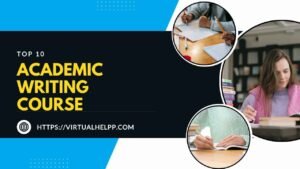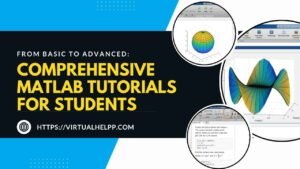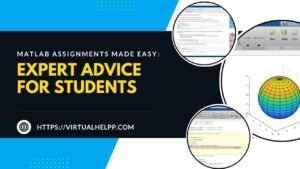Success in education isn’t about working harder; it’s about working smarter. Developing effective study habits can transform your academic performance and make learning a more manageable, even enjoyable, process. If you’re struggling with staying on top of your assignments or understanding complex subjects, you’re not alone. Many students find themselves in need of additional support. This is where Virtual Help comes in, offering a platform to connect with tutors who can provide personalized guidance and support.

Table of Contents
Toggle1. Prioritize Your Time Wisely
Create a Study Schedule
One of the most effective habits successful students have is the ability to prioritize their time. Creating a study schedule is crucial. This doesn’t mean setting aside a vague block of time; it means planning specific times for each subject or task.
Stick to Your Schedule
Consistency is key. Once you’ve set up your schedule, stick to it. This not only helps in managing your time but also creates a routine that can make studying a more natural part of your day.
2. Set Clear Goals for Each Study Session
Define Specific Goals
Every study session should have a clear objective. Instead of just “study chemistry,” set specific goals like “complete chapter 5 questions” or “review and summarize key concepts from lecture notes.”
Track Your Progress
Regularly tracking your progress towards these goals helps keep you focused and motivated. It also provides a sense of accomplishment as you complete each objective.
3. Develop a Consistent Study Routine
Find Your Best Study Time
Everyone has a time of day when they are most alert and focused. Discover your peak study hours and schedule your most challenging subjects for these times.
Make Study Time a Habit
Building a consistent study routine helps in making studying a regular part of your daily life. This routine reduces the stress of last-minute cramming and helps in long-term retention of information.
4. Avoid Procrastination
Understand the Consequences of Delaying Work
Procrastination can be a major roadblock to academic success. Delaying tasks often leads to rushed, lower-quality work and higher stress levels.
Techniques to Overcome Procrastination
Use techniques like breaking tasks into smaller chunks, setting deadlines for each chunk, and using tools like timers to keep yourself on track.
5. Start with Difficult Subjects First
The Benefits of Tackling Tough Topics Early
Starting with the most challenging subjects when your mind is fresh can significantly improve your efficiency. By addressing difficult topics first, you ensure that you give them the attention they need without the pressure of time constraints.
How to Manage Your Energy and Focus
Manage your energy by taking breaks and switching subjects. This helps keep your mind sharp and prevents burnout.
6. Utilize Active Learning Techniques
Engage with the Material
Active learning involves engaging with the material in various ways—through discussion, teaching others, or applying concepts to real-life situations. This method enhances comprehension and retention.
Incorporate Different Learning Methods
Mix different learning methods, such as visual aids, practice problems, and discussions, to keep your study sessions dynamic and effective.
7. Take Regular Breaks
The Importance of Breaks for Productivity
Taking regular breaks during study sessions can boost productivity and prevent fatigue. Short breaks help maintain focus and energy levels.
Effective Break Techniques
Use techniques like the Pomodoro Technique, which involves 25 minutes of focused work followed by a 5-minute break. This method keeps you engaged without overwhelming you.
8. Use Study Groups Wisely
Benefits of Collaborative Learning
Study groups can be incredibly beneficial. They offer diverse perspectives and insights, which can deepen your understanding of complex topics.
How to Make Study Groups Effective
Ensure that study groups are well-organized and that everyone comes prepared. Set clear goals for each session and make sure discussions stay on track.
9. Seek Help When Needed
When to Ask for Help
Don’t hesitate to seek help if you’re struggling with a subject. Whether it’s a tutor, a classmate, or an online resource, getting help can prevent confusion and frustration.
How Virtual Help Can Assist
Virtual Help offers a platform where you can connect with tutors who specialize in various subjects. They provide personalized assistance tailored to your needs, making it easier to grasp difficult concepts and improve your academic performance.
10. Review and Reflect Regularly
Regular Review of Material
Regularly reviewing your notes and study materials helps reinforce learning and identify areas where you might need further study.
Reflect on What Works Best for You
Take time to reflect on which study methods and routines work best for you. Adjust your strategies as needed to continually improve your study habits.
Conclusion
Implementing these 10 habits can set you on the path to academic success. From managing your time effectively to utilizing study groups and seeking help when necessary, these habits can transform your approach to studying. Remember, it’s not just about working harder but working smarter. For additional support and personalized help, consider using Virtual Help to connect with tutors who can guide you in developing these habits and achieving your academic goals.
FAQs
1. What is the best way to create a study schedule?
Start by assessing your current commitments and finding available time slots. Allocate specific times for each subject or task and stick to this schedule consistently.
2. How can I stay motivated to avoid procrastination?
Set clear goals, break tasks into manageable chunks, and use productivity techniques like the Pomodoro Technique. Reward yourself for completing tasks to stay motivated.
3. What are effective techniques for active learning?
Techniques include summarizing information in your own words, teaching the material to others, and applying concepts to real-world scenarios.
4. How do I know when to seek help from a tutor?
Seek help when you encounter concepts or problems that you struggle to understand despite your efforts. Tutors can provide additional explanations and guidance.
5. What role does reflection play in successful studying?
Reflection helps you assess what study methods work best for you and identify areas needing improvement. It ensures that you continuously adapt and enhance your study habits.





